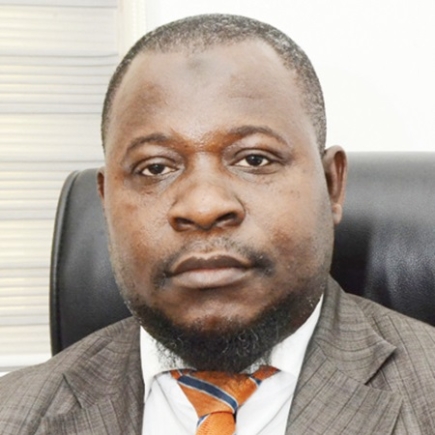
Choose prudence over populism - IFS urges govt
The Institute of Fiscal Studies (IFS) has stated that Ghana's economy remains weak despite recent macroeconomic improvements.
Speaking at a press conference last Wednesday on Ghana’s present fiscal and macro-economic performance, the acting Executive Director of IFS, Dr Said Boakye, said given that position, it was not time to celebrate but to remain vigilant.
Therefore, he said, the government should not act as if all was well but choose prudence over populism even as it campaigned for power in this year’s elections.
“The politicisation of economic policy decisions and choices must stop,” he stated.
After examining the fundamental economic numbers and comparing same with past years, Dr Boakye advised the government to address the underlying drivers of fiscal instability and unsustainability to ensure enduring improvements.
“This calls for deliberate measures to tackle the negative fiscal fundamentals such as low revenue generation, excessive fiscal rigidities, corruption and politically induced spending decisions, to ensure in-depth improvement in fiscal performance on a long-term basis”.
“This will in turn help minimise the excessive domestic financing of the budget and, thus, address its concerning growth and unemployment effects,” the economist, who also worked at the Ministry of Finance until 2012, stated.
Figures
While inflation has dropped from 54.1 per cent in December 2022 to 20.9 per cent in July 2024, and economic growth rebounded to 2.9 per cent in 2023, the institute says those figures still indicate significant challenges.
The IFS said the current inflation rate of 20.9 per cent was the highest since 2004 and far above the African average of 8.9 per cent.
The executive director indicated that the cedi's 18.6 per cent depreciation against the United States (US) dollar in the first half of 2024 was the third-highest since 2000, indicating macroeconomic instability.
Dr Boakye added that the projected 3.1 per cent Gross Domestic Product (GDP) growth for 2024 was low compared to historical averages, saying revenue mobilisation remained a major challenge, with the government consistently over-projecting revenues.
“A country that enjoyed single-digit inflation rates for 31 consecutive months from June 2010 to December 2012, averaging nine per cent or even an average annual inflation rate of 11.8 per cent from 2010 to 2021, must see inflation rate of 20.9 per cent to be dangerously high”.
“This is more so when average inflation rate for 32 African countries for June 2024 stood at 8.9 per cent, with peer countries such as Ivory Coast, Kenya and Senegal registering June 2024 inflation rates of 4.1 per cent, 4.6 per cent and 1.3 per cent respectively,” the acting Executive Director of the IFS said.
Cedi depreciation
Dr Boakye said the cumulative depreciation rate of the cedi against the US dollar in the first half of 2024 demonstrated how unstable and, therefore, fragile the Ghanaian economy remained.
He said apart from the rate recorded in the first half of 2023, the 18.6 per cent cumulative depreciation rate of the cedi against the US dollar recorded in the first half of 2024 was the third highest first-half cumulative depreciation rate of the cedi against the US dollar since 2000.
“It is important to point out that from 2001 to 2021, a period of 21 years, first-half cumulative depreciation rate of the cedi against the US dollar averaged only 7.2 per cent.
“In fact, Ghana was able to record average first-half cumulative depreciation rate of the cedi against the US dollar of 3.3 per cent from 2001 to 2008,” he explained.
He said this implied that the 18.6 per cent cumulative depreciation rate of the cedi against the US dollar in the first half of 2024 was very high, depicting a very unstable macroeconomic environment in the country at present.
GDP growth rates
The executive director also pointed out that the revised 2024 projected growth rate of 3.1 per cent was still very low when compared, generally, with real GDP growth rates as a result of the high macroeconomic instability.
He said the country had in the past two decades recorded an average GDP growth rate of nine per cent from 2009 to 2012, and an average real GDP growth rate of 6.1 per cent from 2007 to 2021, using the newly rebased data by the Ghana Statistical Service.
Dr Boakye indicated that the real situation was in contrast with the optimism the Minister of Finance showed regarding revenue mobilisation when he presented the 2024 Mid-Year Budget Review.
The economist said the revised 2024 total revenue and grants target of 17.4 per cent was not in line with reality and was thus not achievable.
Recommendations
He said with total revenue and grants performance most likely to be far below its revised target in 2024, the government should do well to control expenditure to meet revenue performance, in spite of 2024 being an election year.
That, Dr Boakye said, should be done by adjusting the spending programme in the 2024 budget to always match revenue collections so that fiscal slippage would not occur, which, he said, would have devastating effects on the economy in the years ahead.
